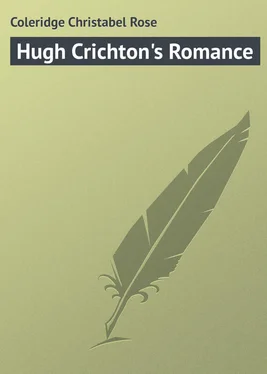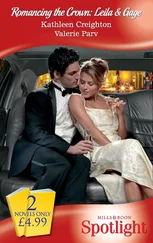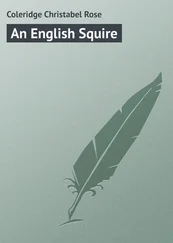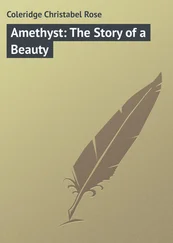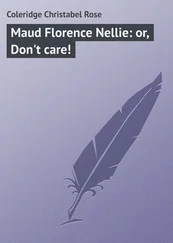Christabel Coleridge - Hugh Crichton's Romance
Здесь есть возможность читать онлайн «Christabel Coleridge - Hugh Crichton's Romance» — ознакомительный отрывок электронной книги совершенно бесплатно, а после прочтения отрывка купить полную версию. В некоторых случаях можно слушать аудио, скачать через торрент в формате fb2 и присутствует краткое содержание. Издательство: Иностранный паблик, Жанр: foreign_prose, на английском языке. Описание произведения, (предисловие) а так же отзывы посетителей доступны на портале библиотеки ЛибКат.
- Название:Hugh Crichton's Romance
- Автор:
- Издательство:Иностранный паблик
- Жанр:
- Год:неизвестен
- ISBN:нет данных
- Рейтинг книги:4 / 5. Голосов: 1
-
Избранное:Добавить в избранное
- Отзывы:
-
Ваша оценка:
- 80
- 1
- 2
- 3
- 4
- 5
Hugh Crichton's Romance: краткое содержание, описание и аннотация
Предлагаем к чтению аннотацию, описание, краткое содержание или предисловие (зависит от того, что написал сам автор книги «Hugh Crichton's Romance»). Если вы не нашли необходимую информацию о книге — напишите в комментариях, мы постараемся отыскать её.
Hugh Crichton's Romance — читать онлайн ознакомительный отрывок
Ниже представлен текст книги, разбитый по страницам. Система сохранения места последней прочитанной страницы, позволяет с удобством читать онлайн бесплатно книгу «Hugh Crichton's Romance», без необходимости каждый раз заново искать на чём Вы остановились. Поставьте закладку, и сможете в любой момент перейти на страницу, на которой закончили чтение.
Интервал:
Закладка:
The two sisters belonged to their mother’s Church, which unfortunately had the practical effect of their belonging to none at all. When Rosa went to England she did as others did, but it was not her lot to come across anyone of sufficient depth to influence her practical self-reliant temper, and, though a very good and conscientious girl, her education had made her indifferent to the outward duties of religion. She thought that she did her duty by Violante when she prevented her from attending Roman Catholic services unless the music was very fine, and heard her read a chapter in the Bible on Sunday, while the rest of the day was spent as usual. Madame Mattei had never had health or opportunity to attend English services, and the two girls only went occasionally; though lately, under Mrs Tollemache’s influence, they had been a little more conscious of their nationality and the duties involved in it. Rosa impressed Violante with a strong sense of the necessity of doing right, and believed that circumstances absolved her from attending to anything further. Violante was of a different mould, and when she saw beautiful ritual and devout worshippers she felt sad, she did not know why.
Rosa was well aware that she could not protect Violante from the approaching ordeal of her first appearance, and knew too of debts that rendered it necessary; but she interposed between her sister and many a reproof, and tried by her alternate coaxing, sympathy, and argument to diminish the girl’s dread of the future that lay before her. Violante had made fewer complaints of late, and Rosa hoped that she was becoming more reconciled to the inevitable.
On the present occasion Rosa’s pleasant cheerful voice was heard talking to Maddalena, who, besides doing all their housework, took Violante to her lessons and rehearsals when Rosa was busy, the latter retaining her English habit of walking alone. She reentered the room as her father quitted it, and began to divest it of its concert-room air, to put away music-stands and books, and to give once more a look of English comfort to the further end of it, where Violante had thrown herself into a big chintz-covered chair, turning her face towards the cushion, when Rosa said, —
“Well dear, you were very successful to-day. I never heard you in better voice.”
“I wish – I wish I had no voice at all.”
“Violante! That is really quite wrong. You should not despise such a glorious gift.”
“It only makes me wretched. Oh, what shall I do!”
Now Rosa had resolved against weak-minded sympathy, and had made up her mind that her sister must not, at this last moment, be permitted to flinch, so, though the hidden face and despairing attitude went to her heart, she replied briskly, —
“Do? Win a dozen bouquets and bring the house down. What a silly child you are, Violante!”
Violante lifted her head, astonished at the shadow of a reproof from Rosa, who little guessed at the tumult of feeling that was making the poor child’s heart beat so terribly.
“You angry, too, Rosa!” she said, for reproaches never made Violante angry, only miserable.
“Angry, my darling, no,” exclaimed Rosa. “I only want you to take heart and courage. My child, don’t cry so dreadfully. What is it, did father scold you?”
Violante crept into the warm comforting embrace, and, laying her head on Rosa’s shoulder, wept so bitterly that her sister could only think how to soothe her; till Violante’s sobs grew quieter and she put up her quivering lips to be kissed, while Rosa smoothed back her hair and began to try the effect of argument.
“You see, darling, father is so anxious. When Tuesday is over and he sees how successful you are, he will be delighted. And you will feel quite differently. Just think of the pleasure of seeing everyone hanging on your voice, and of hearing the applause, and seeing the bouquets thrown at you!” (Violante shivered.) “Oh! it would be worth living for.”
“Oh, Rosa mia, if the voice was yours!”
“Ah, if – But, darling, I shall be as much pleased to see your triumph as if it were mine.”
“But if I fail – and my bad acting – ”
“You won’t fail. And as for the acting, you will act much better when you are less nervous. People will care for your voice and your beauty – they won’t be hard on you.”
“Rosa, you are so different, you cannot understand. I should not mind so much about failing if it did not vex father. It is doing it at all. When I stand up to sing it is as if all the eyes turned me cold and sick, and my own eyes get dizzy so that I cannot see, and if they applaud – even here at the class – it is like the waves of the sea, and I cannot sleep at night for thinking of it.”
“You don’t know how pleasant the real applause will be,” said Rosa, feeling as if she were telling a snowdrop to hold up its head, for the sun was so pleasant to stare at. What could she say to the child, who had no vanity and no ambition – nothing but a loving heart.
“You will like to please me and father?”
“Yes,” said Violante, “but if I should cry, father would – would – ”
“Oh, nonsense, you won’t cry.”
“If father would let me – I would rather teach singing all day!”
“But you know you could not make nearly so much money in that way. And father wants the money, Violante, indeed he does.”
“Oh yes – I know it must be done – I will not make a fuss.”
“That’s a good child. And you will not have to sing only to strangers. Think how kind the Tollemaches are to us, how pleased they will be with you.”
Violante flushed to her very finger tips, and Rosa felt her heart throb.
“They will not like me then ,” she murmured.
“Not like you, what can you mean? Why should they not like you?”
“English people don’t like actresses.”
“Well, but you don’t suppose Mrs Tollemache has any prejudice of that sort?”
“She would not like Emily to do it.”
“Emily! Of course not. Young ladies like Emily don’t sing in public. She would not be a governess or do anything to get her living. But they would think it quite right for you. Why, you will have Mr Crichton and his brother to throw bouquets at you!”
“Yes!” exclaimed Violante, with sudden passion. “He will throw bouquets at me . He will ‘tell his friends I am pretty,’ and he will think – ”
“He? Mr Crichton? Violante, what can it matter to you what he thinks?”
Violante shrank away from her sister, and covered her face with her hands.
“Violante,” cried Rosa, too anxious to pick her words, “don’t tell me you have been so silly as to think about him – that you have let yourself care for him.”
“Oh – I do – I do, with all my heart,” cried Violante, with all the fervour of her Italian nature, speaking from her shining eyes and parted lips.
“What has he said to you – what has he done? He has not made love to you – child – surely.”
“I don’t know,” murmured Violante.
“Oh, I must have been mad – what have I been doing to let this go on?” cried Rosa, starting up and walking about in her agitation, while Violante cowered, frightened, into the great chair, but with a certain self-assertion in her heart, too.
“Now,” said Rosa, recovering prudence, and sitting down on the arm of the chair, “you see, I have not taken care of my pretty sister. Tell me all about it.”
“You are not angry with me, Rosa?”
“Angry, my little one,” said Rosa, while tears, rare in her eyes, fell on her cheeks – “no, only angry with myself. Now, tell me what it is; how long have you felt in this way? What has he said to you?”
“All, how can I tell? He looks at me – he gives me flowers – he speaks to my heart,” said Violante with downcast eyes, but lips that smiled and needed no sympathy in their satisfaction.
Читать дальшеИнтервал:
Закладка:
Похожие книги на «Hugh Crichton's Romance»
Представляем Вашему вниманию похожие книги на «Hugh Crichton's Romance» списком для выбора. Мы отобрали схожую по названию и смыслу литературу в надежде предоставить читателям больше вариантов отыскать новые, интересные, ещё непрочитанные произведения.
Обсуждение, отзывы о книге «Hugh Crichton's Romance» и просто собственные мнения читателей. Оставьте ваши комментарии, напишите, что Вы думаете о произведении, его смысле или главных героях. Укажите что конкретно понравилось, а что нет, и почему Вы так считаете.
